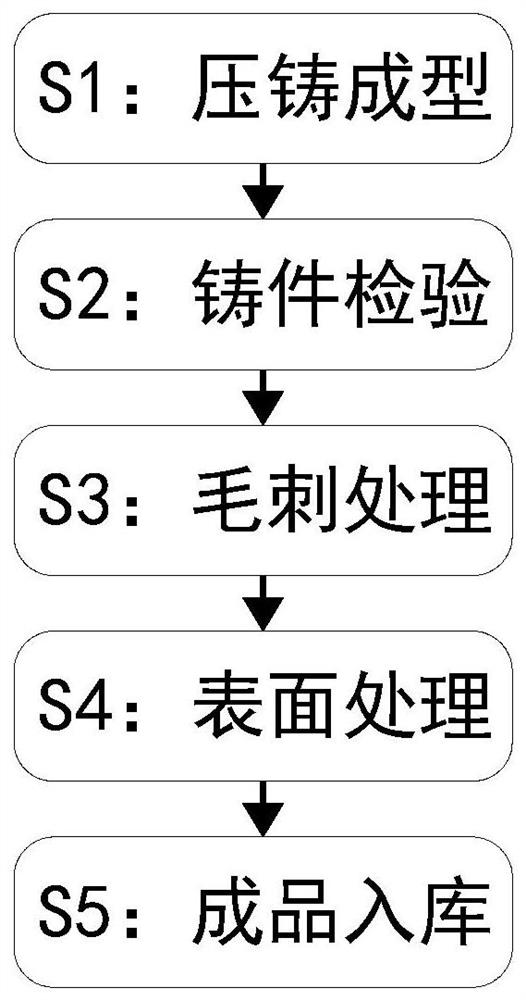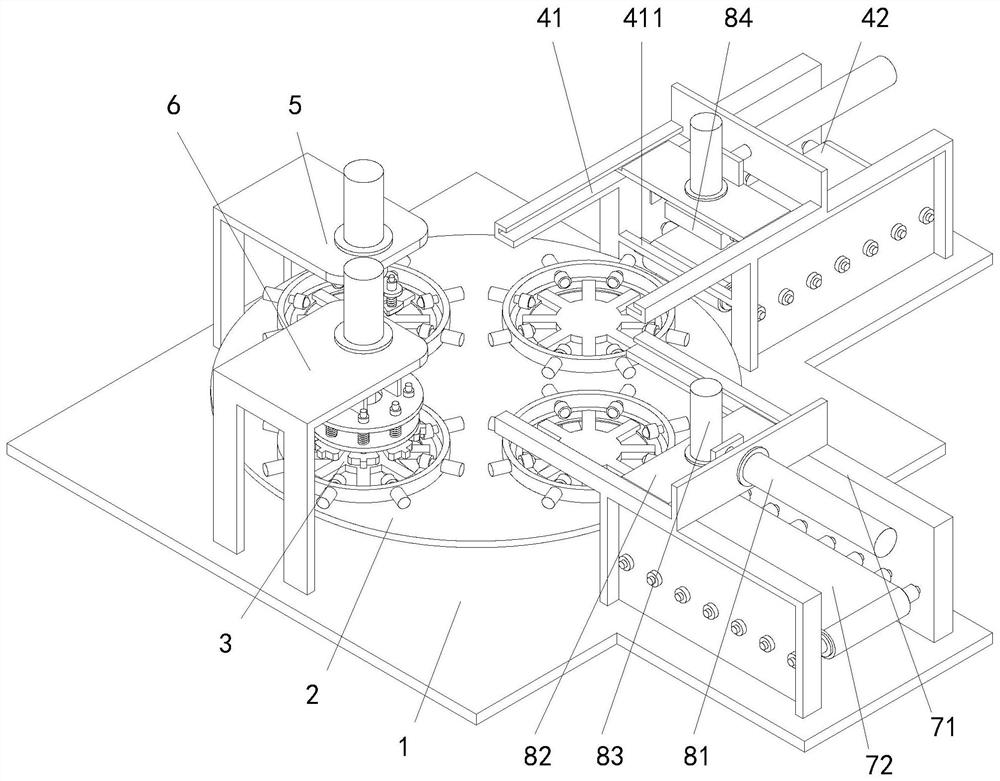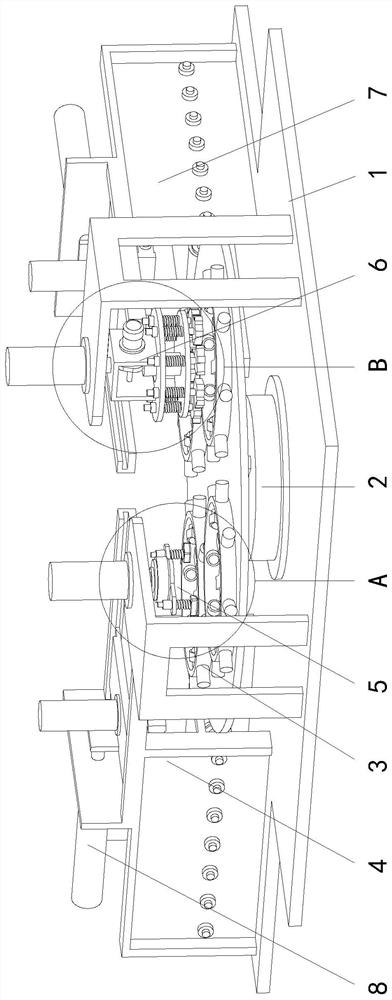A motor rotor die-casting manufacturing process
A motor rotor and manufacturing process technology, which is applied in the field of motor parts processing, can solve the problems of the motor rotor laminations being unable to form a tight lamination structure, reducing the stacking accuracy of lamination assembly, and low efficiency.
- Summary
- Abstract
- Description
- Claims
- Application Information
AI Technical Summary
Problems solved by technology
Method used
Image
Examples
Embodiment Construction
[0035] The specific embodiment of the present invention will be described in further detail by describing the embodiments below with reference to the accompanying drawings, the purpose is to help those skilled in the art to have a more complete, accurate and in-depth understanding of the concept and technical solutions of the present invention, and To facilitate its practice, but not as a limitation of the invention.
[0036] See attached Figure 1-11 As shown, a motor rotor die-casting manufacturing process, the manufacturing process specifically includes the following steps:
[0037] S1. Die-casting molding: inject the smelted metal raw material into the cavity of the die-casting mold to cool and form it;
[0038] S2. Casting inspection: inspect the die-cast motor rotor lamination castings, and select the motor rotor lamination castings that meet the inspection standards;
[0039] S3. Burr treatment: Deburring the groove walls of the selected motor rotor lamination casting...
PUM
 Login to View More
Login to View More Abstract
Description
Claims
Application Information
 Login to View More
Login to View More - R&D
- Intellectual Property
- Life Sciences
- Materials
- Tech Scout
- Unparalleled Data Quality
- Higher Quality Content
- 60% Fewer Hallucinations
Browse by: Latest US Patents, China's latest patents, Technical Efficacy Thesaurus, Application Domain, Technology Topic, Popular Technical Reports.
© 2025 PatSnap. All rights reserved.Legal|Privacy policy|Modern Slavery Act Transparency Statement|Sitemap|About US| Contact US: help@patsnap.com



